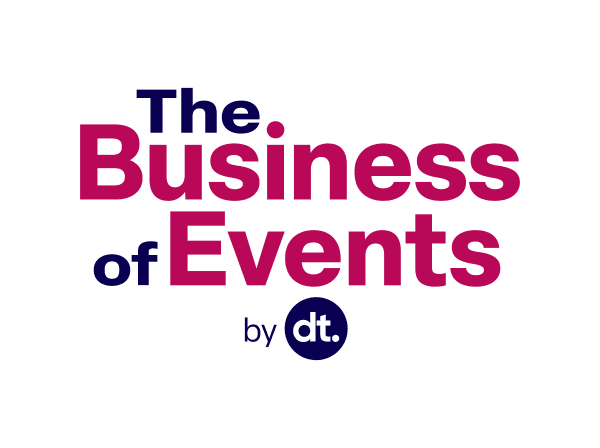In the first of a regular monthly column, Steve Monnington, CEO of Mayfield Merger Strategies, examines the importance of entrepreneurs in the exhibitions sector.
From Batimat to Confex, today’s global organisers owe their successes to yesterday’s entrepreneurs
In 2016, I was halfway through a presentation on mergers and acquisitions at the Exhibition and Event Association of Australasia conference in Sydney when it struck me.
This wasn’t in my notes, but it should have been: without entrepreneurs, the exhibition industry as we know it simply would not exist.
My introduction to the world of exhibitions began when I joined Blenheim in late 1989. At that time, Blenheim was a UK company that had just made its first two acquisitions in France. Until then, almost all the shows it managed were acquired from entrepreneurs, and over the next seven years, as Blenheim grew to become the world’s largest exhibition organiser, this approach did not change. When it was sold to United News and Media, nearly the entire portfolio was acquired rather than launched.
My presentation in Sydney concluded that the major organisers wouldn’t exist without entrepreneurs. Look at the portfolios of the publicly quoted organisers—Informa, RX, Emerald—and those of the private equity-owned organisers—Clarion, CloserStill Media, Nineteen Group—and count the number of events that started as someone’s risky new venture rather than a board-approved launch. You’ll find the same story: entrepreneurs built the house, organisers bought the keys, and many of their subsequent launches are geo-clones of acquired events.
The reliance on acquisitions is hardly unexpected. The Private Equity model requires the use of capital and high growth within three to five years to maximise ROI, but this depends on entrepreneurs being willing to take the risks and initiating events that can lead to market leaders and potential acquisition targets.
Notable exceptions to the high acquired/organic ratio are privately owned organisers, such as EasyFairs, which has only recently been partially acquired by Private Equity and has grown mainly through organic launches.
Terrapinn is another example of a genuinely organic business, and it has only recently increased the pace of its acquisitions.
One of my favourite cultural artefacts is Pete Frame’s Rock Family Trees in the old music magazine Sounds. He traced bands back through their ever-changing line-ups, showing how the departure of one guitarist led to an entirely new scene.
Exhibitions also have their own family trees. Batimat, the French construction show, was launched by an entrepreneur in the 1950s, acquired by Blenheim in the 1990s, sold to UBM in the mid-1990s, and then passed on to Reed (now RX) in 2000.
Confex, launched by Gordon Carlton in 1983, followed a similar path through Blenheim, UBM and now Mash Media.
An endless supply of deals?
The question I get asked most often, usually by friends with only a passing knowledge of this business, is: Doesn’t the supply of entrepreneurs run dry? Surely, once they’ve all been bought out, that’s it? The answer, for the past 30 years, is no.
It’s a cycle. Many of today’s entrepreneurs used to be corporate employees. They left because their bosses wouldn’t take a risk on a new venture, or because they saw their peers cashing out handsomely and thought, “Why not me?”
There is the inevitable challenge for the entrepreneur – most acquirers won’t allow founders to leave on day one. Earnouts and minority shareholdings can keep them tied to the buyer for years, forcing them to return to a corporate culture they once escaped.
Entrepreneurs should be the ones making headlines
It’s easy to get excited about the big numbers involved when one Private Equity firm sells to another. The current focus is on Clarion and who will buy it. Will it sell to a new PE firm, or will Informa buy it? What will happen to its China business? Regardless of who the new owner is, the business will carry on as before.
What interests me most is the entrepreneur’s journey. For over 25 years, we have worked with entrepreneurs, assisting them in selling their businesses.
Sometimes we collaborate with them for two or three years before the company is ready to be sold. When the time arrives, they must handle all the demands of due diligence and the legal process while continuing to manage their business. We should celebrate them more than we currently do. In the coming months, I will share more of their stories as transactions are completed.
Some examples of entrepreneurs who reached such a milestone with their businesses in 2025 include:
- Madeleine Cole and Ursula Tavender, co-founders of The Inclusive Workplace Conference, who sold their business to Mark Allen Group.
- Dan Cockerton and James Howell, co-founders of the Digital Accountancy Show, who sold their business to Easyfairs.
- Mark Brewster, founder of Explori, who has received investment from the Events Venture Group.
M&A focus for UK acquirers is slowly shifting to the US
Number of transactions by geography (location of acquired shows).
| 2023 Total | 2024 Total | 2025 so far (to September 19th) | |
| UK | 21 (45.6%) | 25 (41.7%) | 12 (27.9%) |
| USA | 12 (26.1%) | 18 (30.0%) | 16 (37.2%) |
| Rest of World | 13 (28.2%) | 17 (28.3%) | 15 (34.9%) |
| Total | 46 | 60 | 43 |
In recent years, most acquisitions have taken place in the UK and the USA. In the US, it’s not only domestic companies purchasing shows. Many UK organisers are now turning their attention to M&A in the US, and several UK entrepreneurs, having launched shows in the US rather than in their home territory, are currently in sale discussions with acquisitive UK organisers.
This focus on the US comes at a time of considerable political and economic uncertainty.
However, the US remains an attractive market. UK organisers pursuing deals in the US must combine market knowledge with political and economic intelligence. However, several well-run, entrepreneur-led events are operating successfully despite shifting external conditions.
We expect this shifting M&A trend to continue over the coming months.

